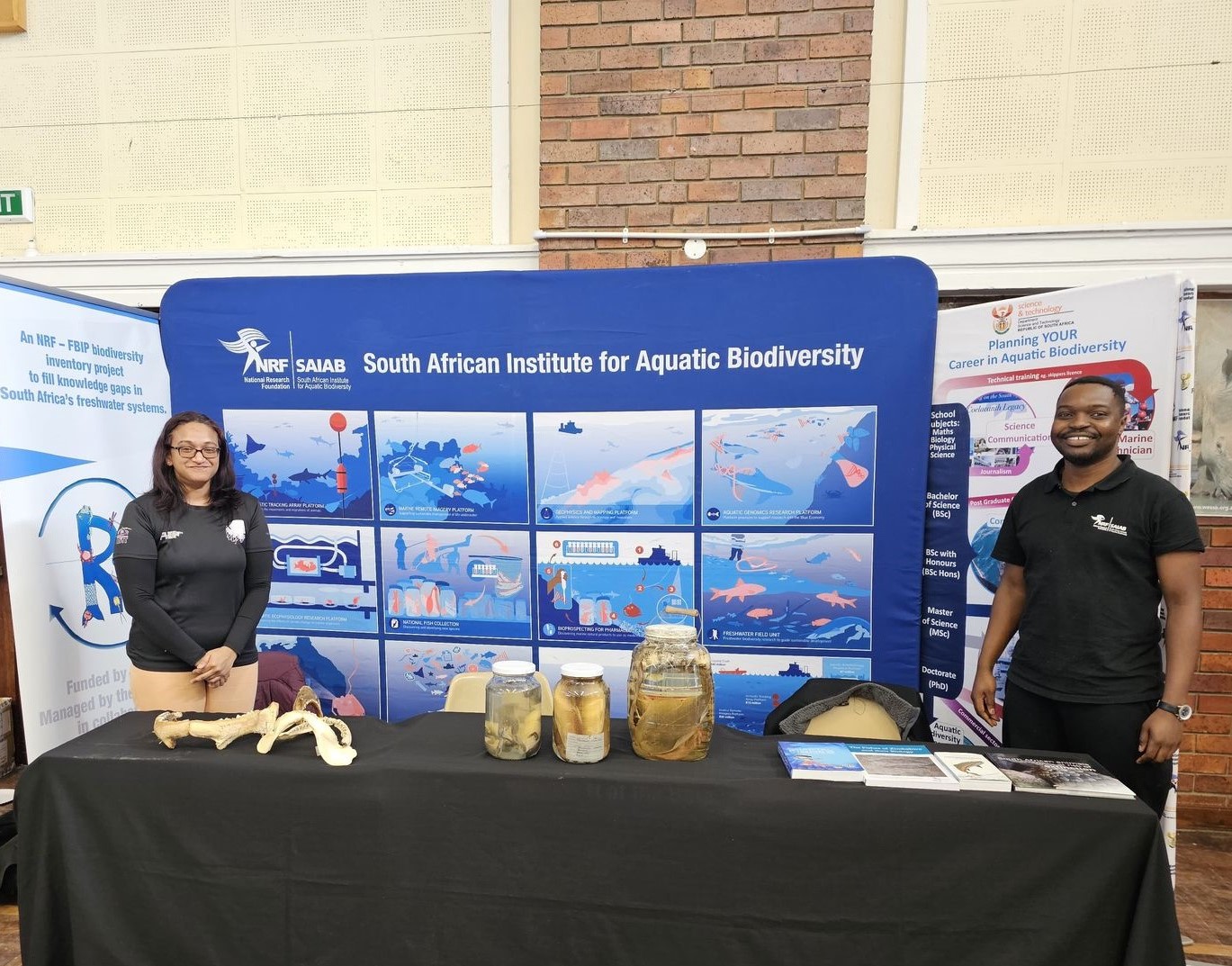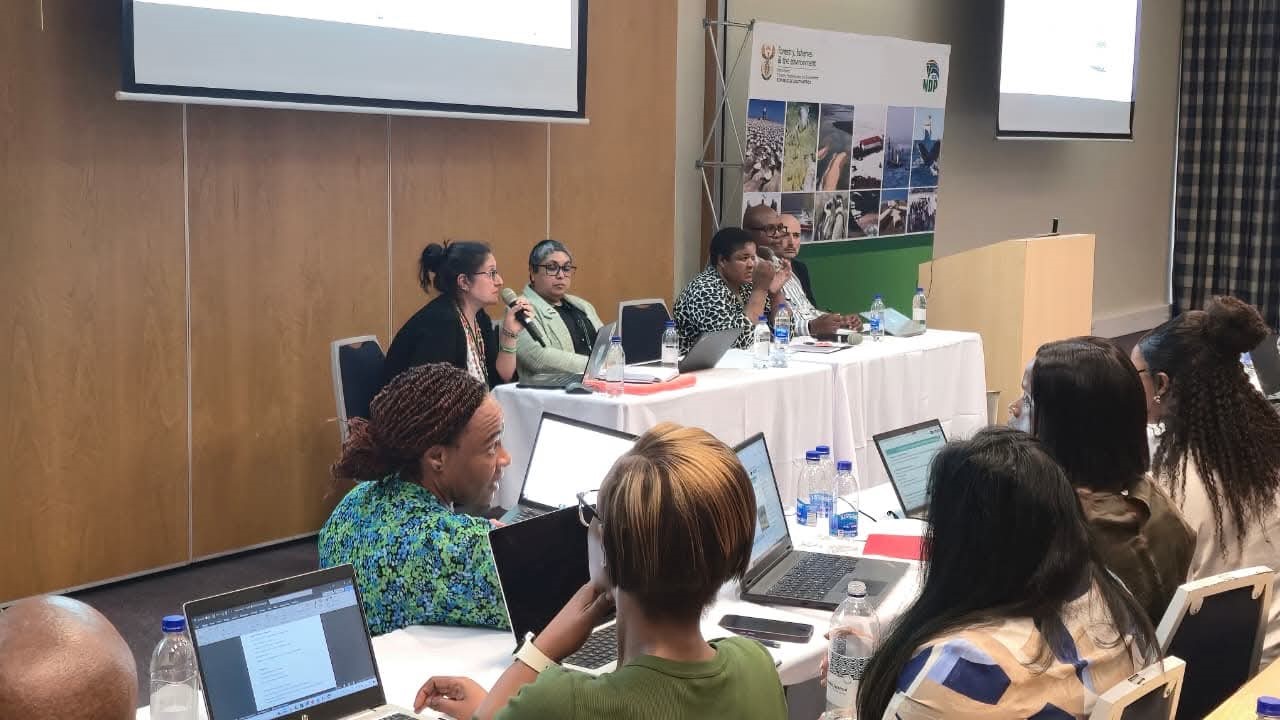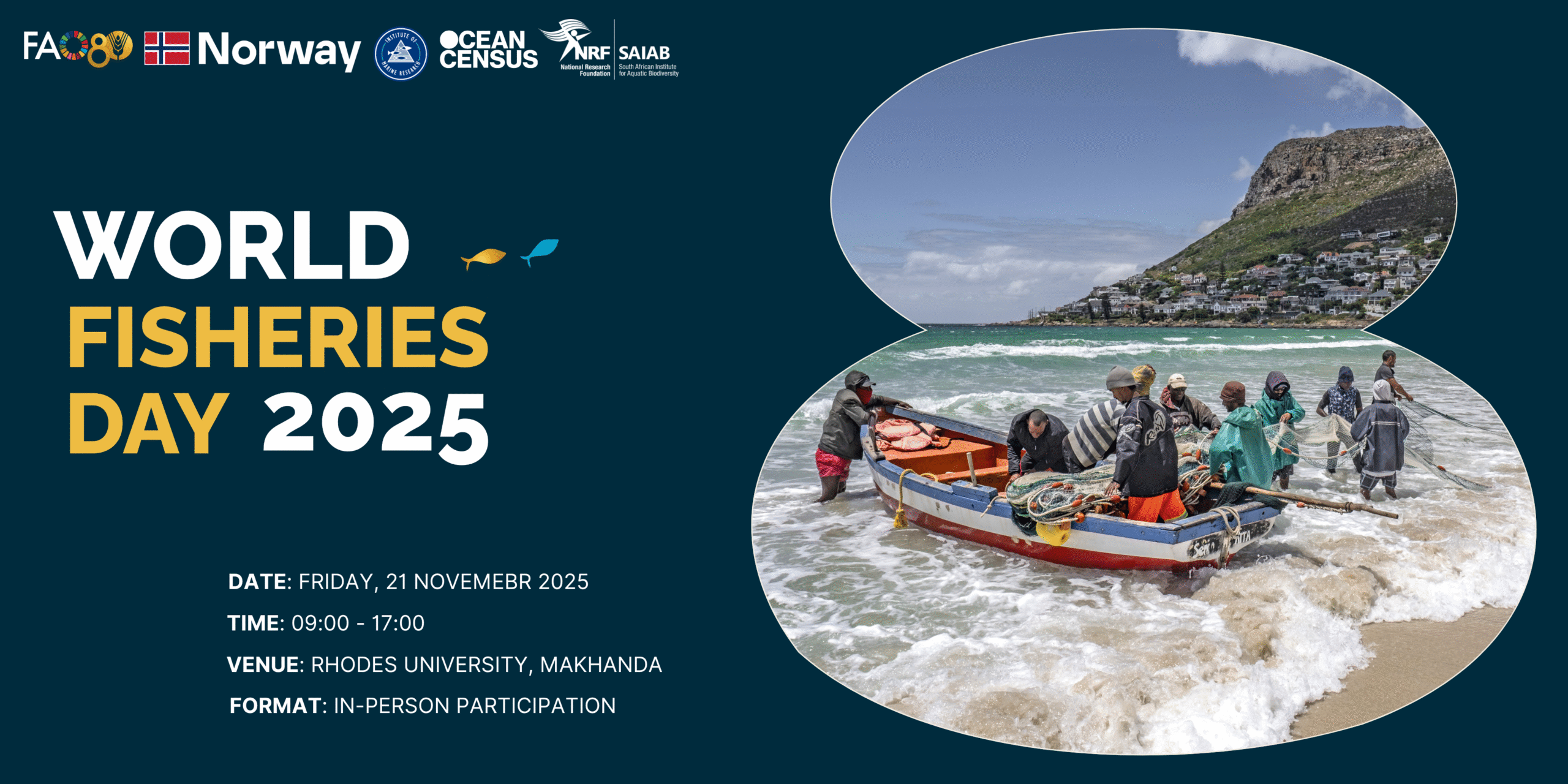By Siyamthanda Ndinisa & Mbali Ngulube
On Saturday, July 27th, Rhodes University’s Great Hall buzzed with youthful energy as it hosted the 40th Regional Science Fair of the Eskom Expo for Young Scientists. This annual event, a beacon of inspiration for pupils across South Africa, encourages young minds to explore science, technology, engineering, and mathematics (STEM). The regional event, held in Makhanda, witnessed remarkable participation from students and researchers of the NRF-South African Institute for Aquatic Biodiversity (SAIAB), who played essential roles as judges, conveners, and exhibitors.
The NRF-SAIAB team included dedicated judges and conveners: Nobuhle Mpanza, Suzanne Redelinghuys, Siphelele Dyantyi, Xolani Nabani, Thembelihle Dube, Tholoana Ntokoane, and Danielle Julius. Exhibiting at the event were Drs Tadiwa Mutizwa and Melissa Martin, fostering scientific curiosity among the youth.
Nobuhle Mpanza, an NRF-SAIAB student who has been volunteering as a judge at the Eskom Science Expo for the past two years, shared her reflections on the experience: “For me, being part of the expo was a fulfilling engagement, especially because I got to directly engage with young enthusiastic future scientists who, at their young age, are already able to identify a problem and innovatively come up with viable potential solutions. It is so encouraging seeing young people with a vision to better their communities through innovative, well-thought-out projects. My involvement in the Eskom Expo has been my way of giving back to the community and to encourage aspiring scientists to continue the science route. Growing up, I never had the opportunity to directly engage with scientists; the knowledge I had about science was from books and television, so it is truly an honour to be the scientist that young learners get to engage with.”
Another NRF-SAIAB student, Siphelele Dyantyi, echoed similar sentiments, expressing his admiration for the creativity and dedication of the participants: “Although this was the second time judging at the Eskom Science Expo for the Makhanda region, the experience was wonderful. The topics of the projects that I judged were all interesting. The level of creativity and passion that the students had in terms of their projects amazed me, but more importantly, the level of understanding, especially for the primary school learners, was impressive. I am envious that at such young ages, the learners, both primary and high school, are exposed to such rigorous science and are formulating scientific projects with all the required criteria. With that said, I do wish that the learners could be assigned a mentor who can assist them through their journeys, as some projects did need a more experienced adult to guide them through the process. All in all, this kind of experience and exposure is invaluable for the learners.”
NRF-SAIAB’s researcher Dr Suzanne Redelinghuys added, “The science expo was a great success, with strong participation from students across many schools and a variety of projects. The overall turnout was impressive, with the participation of Rhodes University students as judges creating a collaborative learning environment. The Plant Sciences section was well represented with 12 projects exploring topics like the effects of worms and different types of music on plant growth, plant physiology, and nutrient deficiencies. Two projects in this category won silver, four earned bronze, and three received merit. It was rewarding to see the students’ enthusiasm and creativity, emphasizing the value of such educational events in supporting the next generation of scientists”.
NRF-SAIAB’s active participation demonstrates the importance of mentorship and collaboration in nurturing the next generation of scientists, ensuring that they are well-equipped to tackle the challenges of tomorrow.




